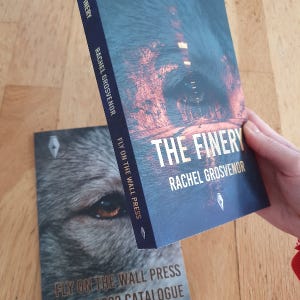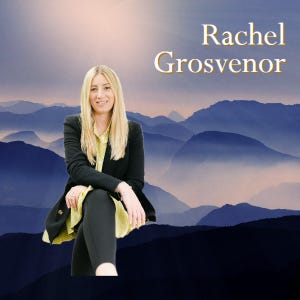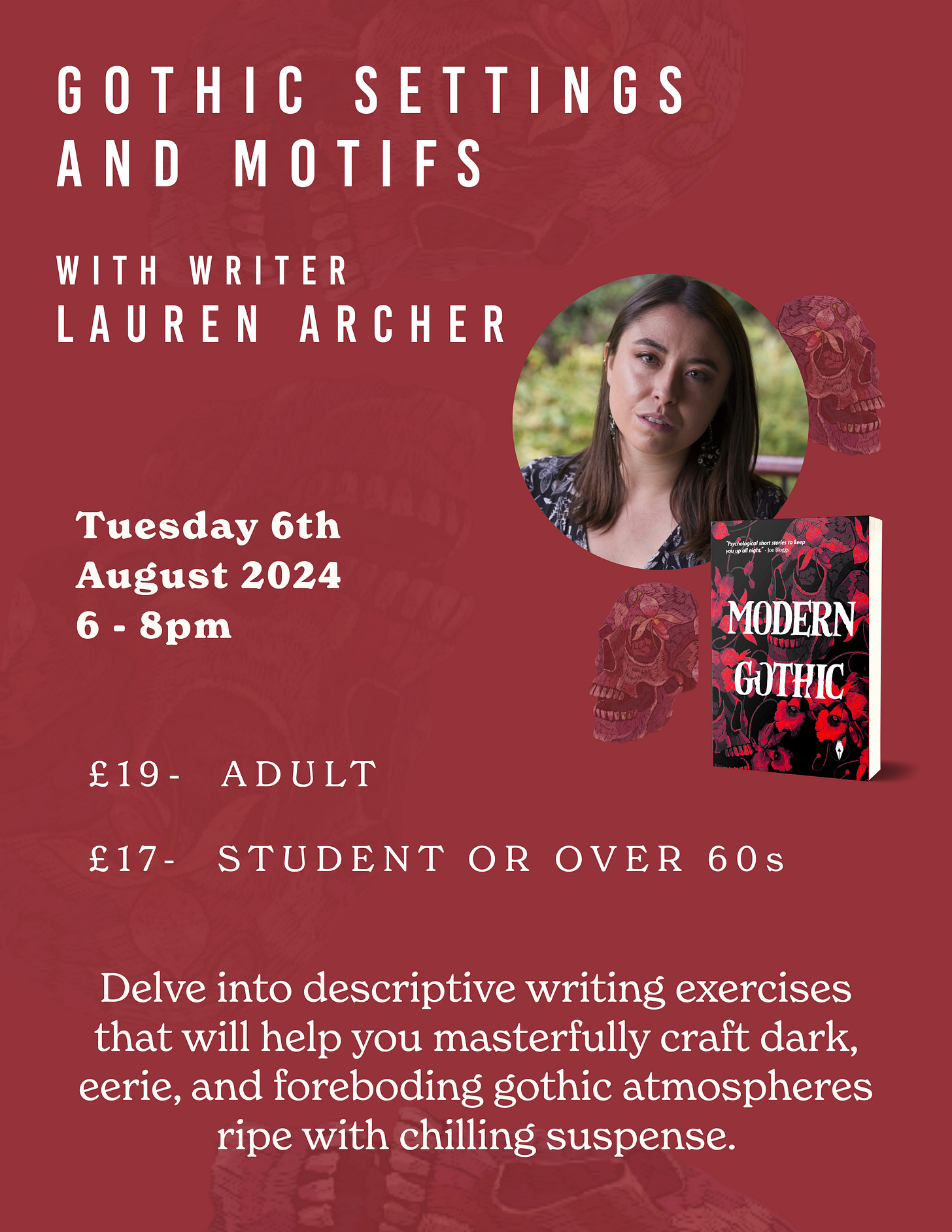What routines do published authors follow?
Surprising lessons learnt, and overcoming writer's block (does it exist?!)
A very happy Friday, Scribblers,
This week we’ve been sharing tasters from our September short story collection ‘Maps of Imaginary Towns’ by SJ Bradley…
One for those of you who have left the place where you grew up - possibly leaving behind some resentful grumblers!
And our May chapbook ‘And I Will Make of You a Vowel Sound’ by Morag Anderson received a glowing review!
Plus Lauren Archer’s Modern Gothic inspired online writing workshop is filling up! Book and more details here.
For today’s newsletter, I spoke to published authors Stu Hennigan (Ghost Signs (Bluemoose) was shortlisted for two national literary prizes, including Best Political Book By A Non-Parliamentarian at the Parliamentary Book Awards in 2023. Disappear Here: Bret Easton Ellis’ America, a social and cultural history of the US from 1970 to the present day as seen through the lens of Ellis’s novels, will be published by Ortac Press in late 2025.), Rachel Grosvenor (The Finery (Fly on the Wall Press) is a feminist fantasy reviewed in The Guardian "The elderly heroine and her wolf make a refreshing change in this whimsical, gently satirical fantasy debut about how easily a police state might evolve."), and Joe Bedford (debut novel A Bad Decade for Good People, was longlisted for the Grindstone Novel Prize 2020, published by Parthian Books in June 2023).
I wanted to ask about their routines and careers: just how do we achieve a career as a writer, and what tools do we pick up along the way?
True to their artforms, each wrote me book-length answers (big thank you haha), and so below is an edited version. I hope it inspires you!
1. What's your most unconventional writing habit or ritual?
Rachel Grosvenor: I have a habit of falling far too deeply into research! When I'm writing about a place that takes from a specific time period, for example, you can often find me dressing up in clothing reminiscent of that time, cooking the foods, and generally falling too deep into the rabbit hole of research. I mean, do I need a genuine Victorian wedding dress in order to write a scene? No, no, I don't. That doesn't stop me from finding one online, though…
Stu Hennigan: Using spreadsheets for planning. I kinda fell into it when I was working on the earliest versions of Ghost Signs. I’d make lists of all the things I needed to do on the next run through the MS, and found that if I stuck them on Excel I could group them together and colour code them, so that way I could address multiple issues on a single edit. Similarly, when I was working on Keshed, (the novel I’m trying to place atm) there are three narrative voices – although all relate to the same character – that tell the story in different ways. One of them didn’t necessarily have to be chronological, and I didn’t write those parts in order, so it was tricky at the start working out what went where. At the end of every draft I mapped out what order the chapters came in, gave each narrative a colour code, and it helped me see where/if they needed moving, or spreading out more.
The research for my current non-fic project, Disappear Here, would horrify most writers, I think! I’m looking at 50 years of social and cultural American history through the lens of Bret Easton Ellis novels. I’ve got about 10 main themes I’m looking at (as a guide) so, for each of his works, I have an Excel sheet with a tab for every theme, so I can annotate, with page refs, quotes and notes as I go along. I’ve a super-rational and logical side to my brain though and while this may seem terrifyingly obsessive and sterile to some folk, it works like a dream for me.
Joe Bedford: I’m psychotically conventional, and that helps me to downplay the tendency in me to inflate writing into something more profound than it really is. I work best when the craft feels more like a vocation and less like an identity. The only totem I have is a framed picture of Ayn Rand which I carry when I travel. I look up at it when I’m writing sometimes and it makes me laugh.



2. How do you overcome writer's block or creative slumps?
Rachel Grosvenor: Writing exercises are great for this. I allow myself to write anything, roll my writing dice, pull a tarot card, and remove whatever pressure is holding me up. I also make it fun again by digging deep into research, watching relevant films, and talking to others about the project.
Stu Hennigan: I’m 43 in October, but from the ages of 22/23 to about 38, I pretty much gave up writing. Part of it was because I couldn’t stand the rejection that’s an inevitable part of the game; but it was also because I was so obsessed with every sentence being perfect. Since I was diagnosed with ADHD and started taking meds for it (this was after Ghost Signs, a couple of years ago), that’s not a problem because I’m supremely focused every time I sit down, and writer’s block isn’t ever a worry, because I have so many ideas I couldn’t possibly ever have time to write them all.
Joe Bedford: I will more than happily sit down and write two hours’ worth of awful prose with no resonance, elegance or flair, which I can then either build on later or throw away. It takes no creative impulse to produce work like this – it is like doodling during a meeting – but it helps me to narrow the possibilities of what ideas might be worth exploring. The blank page can sometimes cause a form of choice paralysis which, like self-consciousness, makes all ideas look equally unrealisable. Writing badly helps me to overcome that paralysis.
Keep reading with a 7-day free trial
Subscribe to A Publisher with a Conscience: Fly on the Wall Press to keep reading this post and get 7 days of free access to the full post archives.






